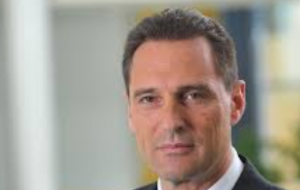
Peter Frankhauser grilled

Thomas Cook’s CEO Peter Frankhauser tells MPs that government refused to support rescue plan led the178-year-old travel company’s collapse. He had spoken to ministers in the government of Bulgaria, Spain, Greece and Turkey in Thomas Cook’s final week – but not the UK as the company tried to piece together a rescue plan.
A committee led by Labout MP Rachel Reeves spent two-and-a-half hours grilling Mr Frankhauser and four other members of Thomas Cook’s board about the company’s debt levels, accounting practices and executive pay.
Frank Meysman the company’s chairman said its bank and largest shareholder Fosun were in favour of agreeing a £900m recapitalisation of the company up until 4 pm on the Sundya before it collapsed the following day.
The group went into liquidation in the early hours of Monday September 23, with employees told only minutes before a final announcement was made.
Mr Frankhauser said he “ didn’t dare criticise the government” but that on September 22, “ We knew that we needed something that was strong otherwise we couldn’t have taken off again on Monday because the business was on its knees. If the recapitalisation plan had been successful, Thomas Cook would have been the best funded travel company in Europe”.
The committee started with questions about Thomas Cook executives’ salaries and bonuses. Board members received salaries totalling £20m in the five years before its collapse. Mr Frankhauser defended his pay saying half of his £8m remuneration was given in shares which he never sold and were now nil and void. And added that 30 per cent of a £750, 000 bonus payment for 20167 was awarded in shares and that he had not received bonuses in 2018 and 2019 nor received a 2 per cent annual increase in pay this year. When asked if he would return some of his pay Mr Frankhauser said “I’llconsider what is right but I will not decide that today.
Transport secretary Gramt Shapps said the government did not want to “risk throwing away good money after bad” and still have to pay for the repatriation of the 150, 000 holidaymakers that were on vacations when the company went under.
